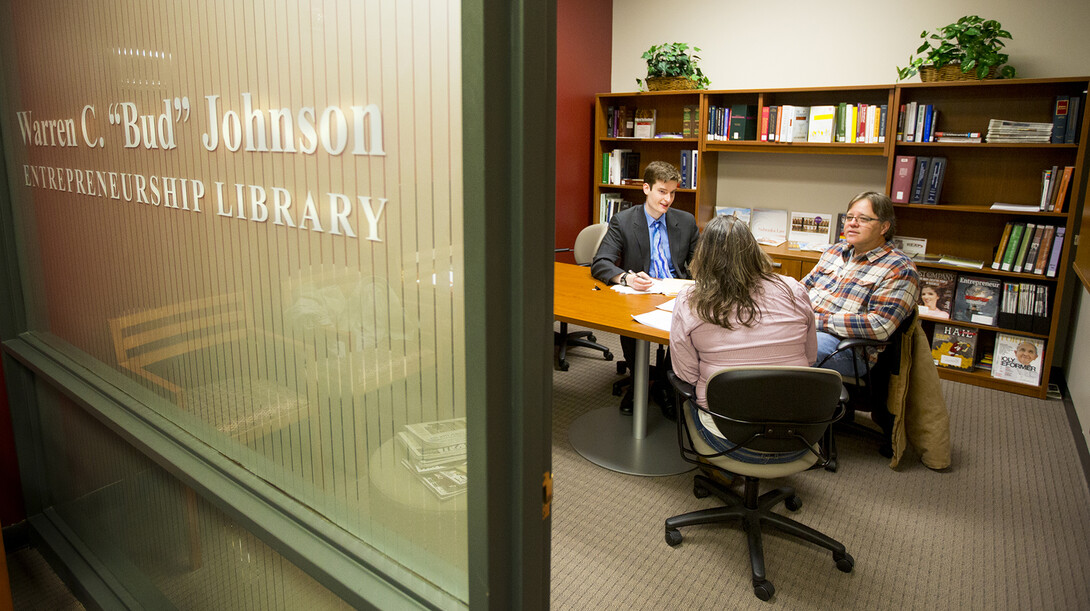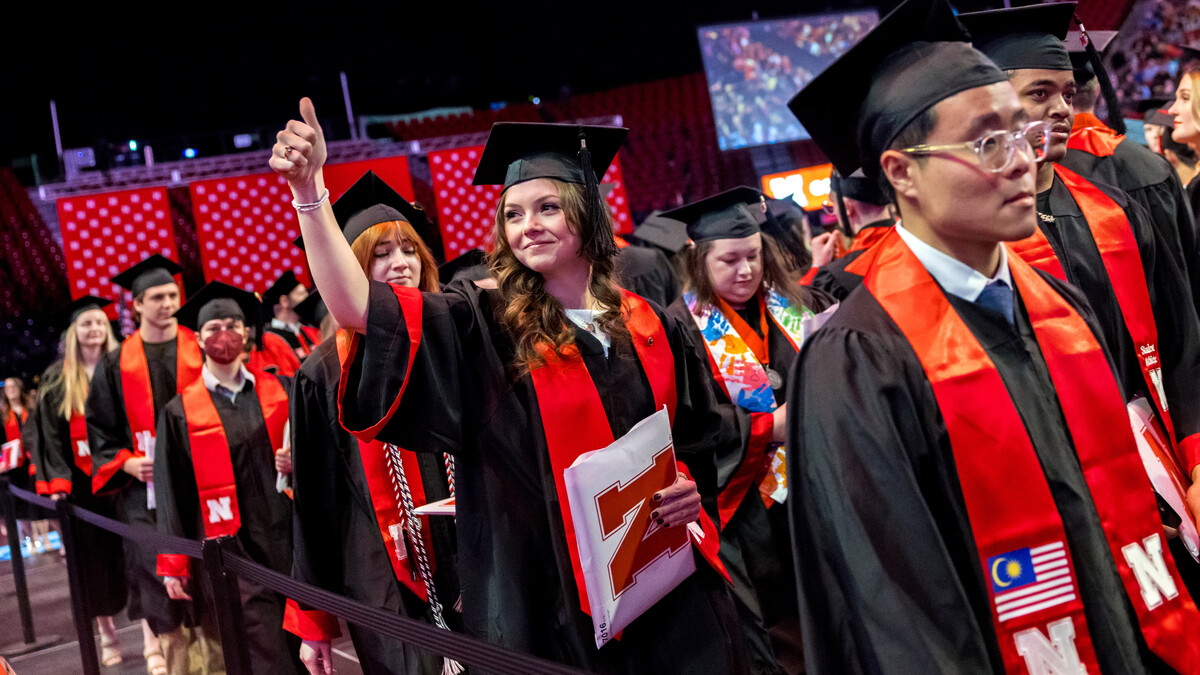
In the basement of UNL’s McCollum Hall, University of Nebraska law students have been enriching their education while helping the state’s entrepreneurs get a head start on success.
The win-win for students and start-ups became a possibility with the launch of Nebraska College of Law’s Entrepreneurship Legal Clinic in 2013. Since that first semester, 45 law students have worked under clinic director and assistant clinical professor of law Brett Stohs, serving nearly 60 clients in launching new business ventures.
Students advise and represent start-up business clients in a variety of early-stage legal matters, including entity formation, contract drafting and review, intellectual property protection, real estate, financing, regulatory, compliance and other transactional matters.
Each semester, a new roster of eight student attorneys is selected through a rigorous application process. It’s a big time commitment for the students, but the payback is bigger, Stohs said.
The breadth of work saves entrepreneurs valuable resources, and each type of problem the students address provides practical job experience, he said.
“I always tell the clients, there is no one-size-fits-all form for what they need,” Stohs said. “You can’t just pull it off the shelf.
“Contract work is generally great. It provides good writing and drafting experience for the students. Negotiating shareholder agreements is also a terrific experience. It is the closest thing to providing the students with a blank canvas and asking them to draw a unique work of art. That’s a really rich experience that I like exposing the students to.”
Daniel Sweeney, a third-year law student who just finished a semester of work in the clinic, said the education he received was not only practical, but fulfilling, too.
“The clinic allows law students to get real hands-on experience that cannot be replicated in the classroom,” Sweeney said. “It has enabled me to put all the theory I have learned from the past two years into actual practice.”
“The most fulfilling part of the clinic has to be being able to help small and start-up businesses with their legal needs. While this may seem trite, there is no better feeling than seeing someone in need and then being able to help him or her through the issues they are facing. The interactions with the clients make the clinic the most worthwhile experience.”
The value of the clinic to the state can’t be understated, said Hastings’ Lisa Tschauner, an entrepreneurship instructor at Central Community College and a co-owner of Open For Business Magazine, a client of the clinic.
“(Without the clinic) we wouldn’t be able to move at this pace with our legal endeavors or seek out the right counseling because of the cost of it,” she said. “For a small business just starting up, it’s hard to do that, and a lot of startups just don’t do it. Five or six years into it, they could make some pretty big mistakes, but had they had that guidance from year one, it could really enable success.”
Even though the clinic is a relatively new endeavor, Stohs said its reach within the state is growing.
“We were always open to the state, but it was easier to reach the Lincoln crowd first,” Stohs said. “As we’ve gotten our sea legs, so to speak, we’ve had an increasing number of clients from rural communities and greater Nebraska.”
Stohs said he sees this as a benefit to Nebraska entrepreneurs and law students.
“I work very hard to give every student — even if they have no interest in rural practice — the chance to work with at least one client from greater Nebraska,” Stohs said. “It usually provides a really nice illustration of the differences in different types of clients.”
Because of the clinic’s size in staff and students, about 20 clients can be served each semester. Stohs said there are generally 50 prospective clients on the waiting list.
“It’s a good problem to have, but it’s also a problem I don’t like because there’s all this unmet need,” Stohs said. “That part of me is never going to be satisfied until we can serve more.”
Growth isn’t on the immediate horizon, but Stohs said he hopes to expand the types of services offered in the near future.
“Attorneys frequently get requests to work with nonprofits on a pro bono basis, and frankly, it’s the simplest way for a transactional attorney to help,” Stohs said. “There are some very different dynamics with non-profits that I think would be great exposure for our students. It’s a very big need and I think if we could slowly expand into that area, it would be a big benefit for all.”
Stohs’ main goal, though, is educating students, which is why building relationships across the state will continue to play an important role. It’s why each semester the students are also assigned to do educational outreach at various business-oriented events.
“The more we can expand our reach, the better educational experience we can give our students, and the better wisdom and experience our clinic can draw from as we deal with more clients going forward,” he said.







